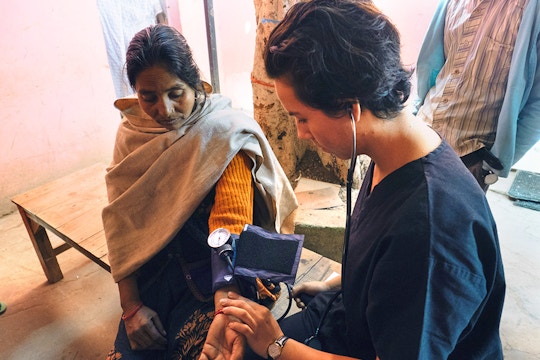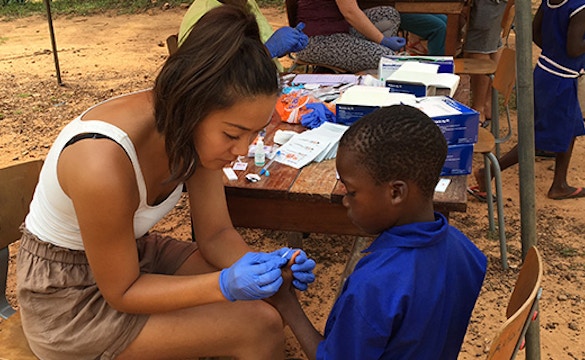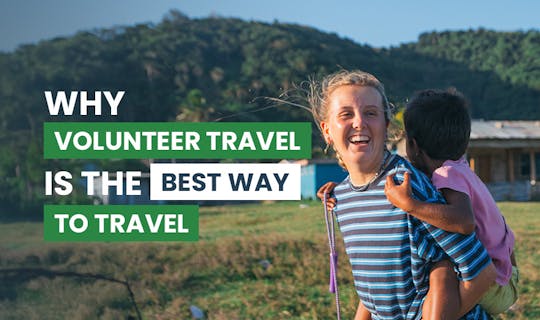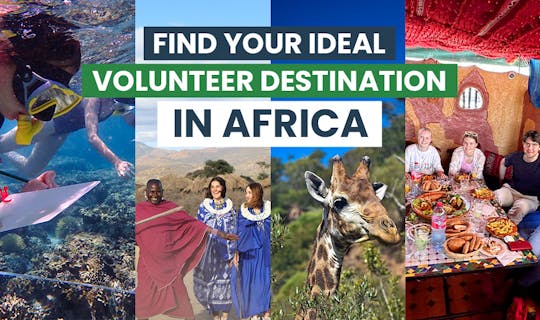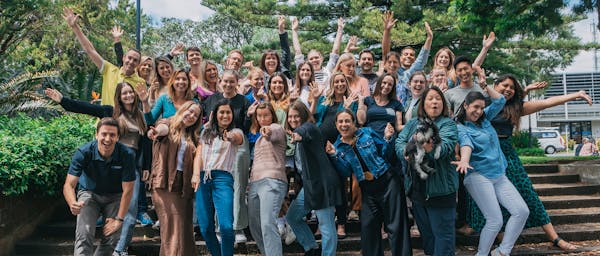Thanks to volunteering in the childcare program within the Philippines, I have grown as a person and further strengthen my relationship with my partner, who also accompanied me. I learnt the culture and the ways of the people. Teaching children gave me a brighter idea of what to do of my future. Honestly, this has been an experienced that I will never forget and I am truly grateful that I got do it. Hopefully again!!!
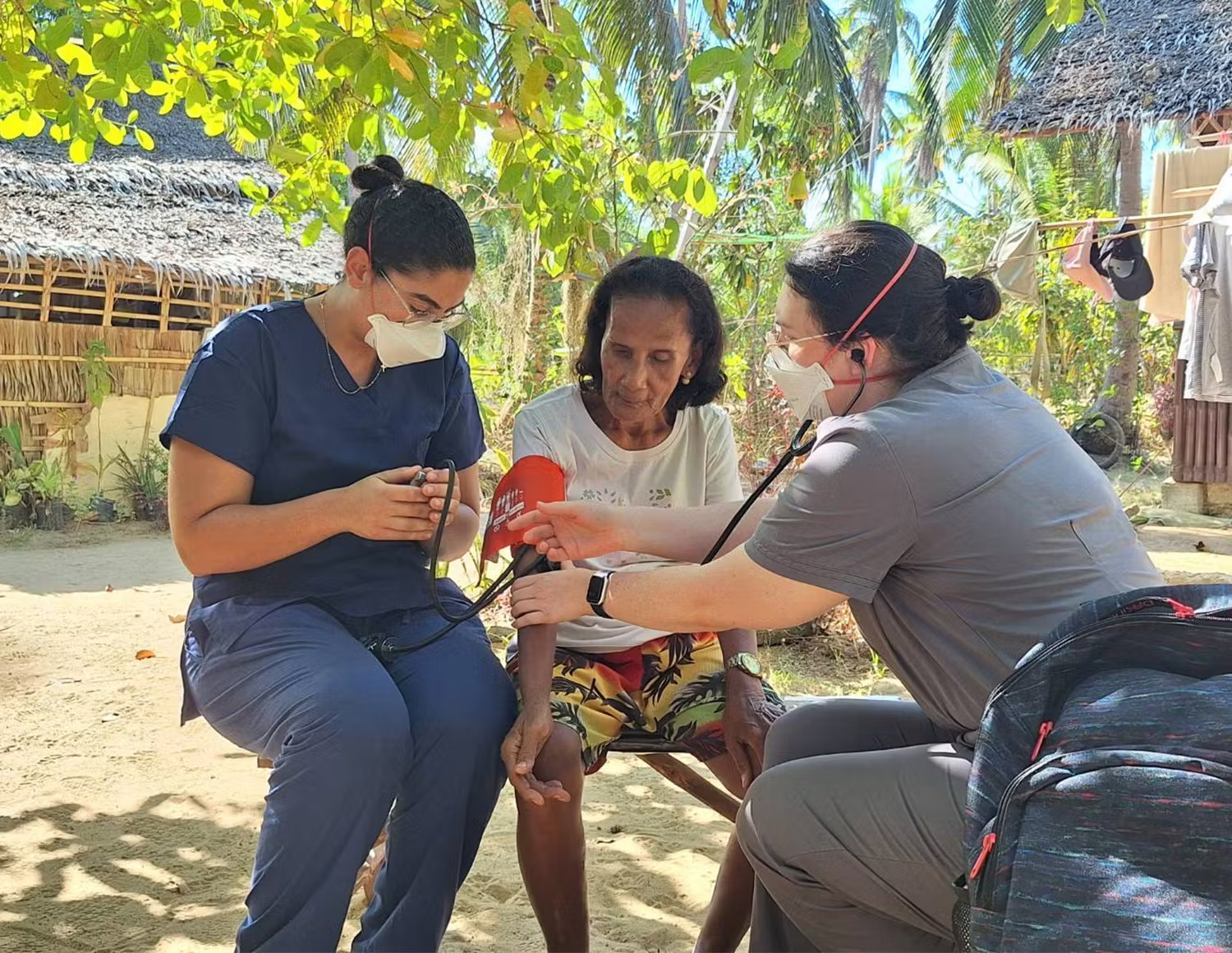
Healthcare Volunteer Project in the Philippines - Palawan
Purpose
Start dates
Duration
Volunteer hours
Age
Accommodation
Who is going?
Group video calls
Once you have secured your place, join regular video calls to meet your Program Manager and other volunteers before your trip.
This program is ideal for:
Project details
Are you ready to roll up your sleeves and dive into the heart of rural healthcare? In Palawan’s remote communities, access to healthcare isn’t just limited - it’s often non-existent. Your presence can be the difference between untreated illnesses and lack of health education, to early medical interventions and informed, educated communities, contributing to long term wellbeing. International Volunteer HQ’s Healthcare Project in Palawan offers a unique opportunity for volunteers to make a meaningful impact by supporting rural health clinics and participating in village outreach initiatives.
What to expect and how you'll make an impact
If you are a qualified medical practitioner, an individual seeking a career in medicine, or someone interested in assisting with healthcare education, this program is for you. You can contribute to the development of healthcare in the Palawan area by either volunteering in the field or teaching basic first-aid and methods to maintain personal hygiene to the local community.
The local community of Aborlan, situated in the center of Palawan, aims to eradicate public health problems through healthcare programs. However, there are limited numbers of medical and healthcare workers - and that’s where your help and assistance are much needed.
A large number of people, particularly in Aborlan’s rural districts remote from the major cities’ hospitals, live below the poverty line. Because they lack the money to pay for their medical requirements, people of these communities typically travel to the nearby healthcare units, clinics, or centers for free medical care.
Volunteers with medical experience will help out local staff at these healthcare facilities. They serve as the main source for free healthcare for the community.
Volunteers who are still in training will have the opportunity to observe local professionals and learn about the treatment of prevalent diseases in the Philippines. Duties may include:
- Assisting with routine medical tasks
- Measuring and weighing patients
- Taking blood pressure
- Routine check-ups
- Provide advice about nutrition, general health, and sanitation
- Helping with an outreach medical camp for babies and the elderly in rural villages
Qualified and experienced professionals will be able to provide more hands-on care or can request to volunteer in their area of expertise (although this cannot be guaranteed). Duties may include:
- Treating minor injuries
- Cleaning and bandaging wounds
- Taking patients’ blood pressure and temperature
- Completing paperwork
- Dispensing medicine
The project also involves educating the local community in basic first-aid and personal hygiene, such as washing hands, brushing teeth, and general cleanliness. This contributes to the prevention of many preventable health issues and diseases.
Volunteers without a medical background will educate school children and the local community in basic first-aid and personal hygiene such as washing hands, brushing teeth, and general cleanliness. This contributes to the prevention of many preventable health issues and diseases. There will also be opportunities to help with feeding the vulnerable population of the community and doing outreach campaigns in the villages.
Volunteers with a medical background should bring scrubs or a white overcoat, a stethoscope, a face mask and Medical Gloves. Comfortable working shoes are also recommended.
Why do Healthcare volunteering in Palawan with IVHQ?
Why do Healthcare volunteering in the Philippines with IVHQ? While volunteering on the Healthcare project in the Philippines you’ll be adding value to the local community, while also developing personally and professionally by:
- Helping rural communities access vital healthcare
- Helping students develop important health skills
- Gaining teaching and health education experience
- Developing your communication skills
- Gaining medical experience
- Participating in a cross-cultural exchange of ideas
- Immersing yourself fully in the Filipino way of life
- Exploring the beautiful island of Palawan
Volunteer requirements
- Volunteers aged 16 or 17 on their program start date are required to provide IVHQ with parental consent in order to participate in the program, and may be asked to provide additional documents to the local team.
- All volunteers aged 13+ are required to provide a criminal background check to IVHQ prior to departure. Those aged 13-17, if unable to obtain a criminal background check, can provide two character reference letters instead.
- All volunteers are required to have adequate volunteer travel insurance.
- To respect the local culture and customs in the Philippines, volunteers should be aware that they’re unable to have anything obstructing their face while at their volunteer placement.
- All volunteers must speak fluent English.
- To volunteer in the hospital or rural health unit you need to be a pre-medical or pre-nursing student, nursing or medical student; or a qualified medical professional. Paramedics, EMTs, CNAs, lab techs, pharmacists and dentists (including dental students) may be eligible to take part, although volunteer work in these fields cannot be guaranteed and is likely to be more general.
- Volunteers will need to submit qualifications or an academic transcript and a CV/Resume to the local team at least 2 weeks before starting the program.
Are you eligible to volunteer?
Submit a free application so we can confirm your eligibility and check availability for your preferred dates.
Not sure which program to join?
Get personalized recommendations >
Who is going?
Group video calls
Once you have secured your place, join regular video calls to meet your Program Manager and other volunteers before your trip.
Philippines photo gallery







































What recent volunteers said about their IVHQ experience
I would like to be a teacher and I am going to study this at uni next year, so this was an amazing experience for me to get stuck in and have a taster of what I am going to be doing. I gained so much confidence in the classroom as the teachers gave us the freedom to teach the class ourselves, and I found the best part was to be able help the children that needed extra help, as I did when I was in school. The lesson planning ensured I was disciplined and I am glad we didn’t just get given a plan, but we had to create them ourselves; making our own powerpoints and worksheets made the experience much more valuable for me as I had to learn new skills and it allowed me to understand what I was teaching more thoroughly.
Advice: You have to remember that being an effective volunteer isn't easy, and there can be times which make you question the effectiveness of your work, however, if you remain patient and motivated you will make a difference! Be open to the new culture and cuisine, trying your best to learn more about it from the local people, and you will have a much more enjoyable time than if you’re closed minded.
I didn't have big expectations going into this program, in the sense that I knew that I wouldn't change the world in such a short time. I wanted to explore a new part of the world and immerse myself in a different culture, keeping my heart open to anything new. What I didn't expect was to gain such an incredible new way of seeing and understanding the world and myself.
My advice for anyone who wants to do a volunteer programme would be to trust yourself and throw yourself into the deep water, as you will most likely find amazing new friends and new experiences you never even thought of, and coming out of it, hopefully, you will realise you are a different and better person than before.
I loved the fact that I got to do a bit of extra work outside of my program, which was doing a bit of disaster relief for the impacted community when Typhoon Yagi hit the Philippines. Palawan wasn't too badly affected, but there was a tree down on a family's home in which my group kindly assisted.
It was the best experience for my first time travelling. This is because I feel like I've made an impact on the community, made friends, had valuable experiences, instead of travelling just for the sake of being a "tourist" and going "sight-seeing". The only small regret I have was having the attitude of "trying it out" and only staying for 1 week. But even though my time was short, my foundation for future travel and volunteering seems pretty stable, learning many lessons for my next trip.
I've learned new things about a different culture, including a few basic phrases in Tagalog. I've also learned and developed new skills like planting mangroves and working with pupils whose first language isn't English. I would encourage anyone to volunteer in the Philippines for a few weeks, it is totally worth it.
To read all reviews, visit our reviews page.
Academic course credit

Academic course credit
Gain course credit from your college or university and meet your academic requirements when completing a volunteer abroad program with International Volunteer HQ!
Learn about course creditLocation

Location
Set in the western Pacific ocean, the Philippines is a collection of incredible islands that are home to nearly 110 million people known for their friendly smiles. With a multicultural population and a newly industrialized economy, cities in the Philippines have been making great strides towards reducing poverty. However, in the country’s more remote areas low-income communities still struggle to access basic necessities like healthcare and education. Volunteers are valued in these areas for the help they provide to local schools, community services and initiatives that aim to improve the quality of life for those outside the main centers.
IVHQ’s Philippines program is set in the Arborlan District on Palawan - an island often considered one of the most beautiful in the world. With turquoise waters lapping at the edges of white sandy beaches, breathtaking scenery, UNESCO World Heritage sites and world-class diving spots, it’s a coastal paradise to rival any place you could dream of. Volunteers will stay near the remote Tigman Village on the east coast of Palawan.
Arrival and orientation
The program orientation is held every Monday and volunteers need to arrive in Palawan on the day before orientation.
After you have registered for the program, please book your flights to arrive at the Puerto Princesa International Airport (PPS) between 10am and 5pm. Your airport pick-up is included in your Program Fee. We recommend that volunteers under the age of 18 travel internationally with a notarized letter from their parents to support their documentation.
When you arrive, you will be greeted at the airport by a member of the local team and transported to the volunteer accommodation in Tigman Village. Your accommodation is covered by your Program Fee and includes the night before your program orientation. If you are traveling in the Philippines prior to your volunteer program, we can arrange for you to be picked up in Puerto Princesa on the day before your program orientation.
There are two options for orientation in the Philippines, a One-Day Orientation and an Introduction Week.
The One-Day Orientation: This begins on your selected start date and all volunteers will attend. It covers everything you need to know for your volunteer program in the Philippines, including an introduction to the IVHQ Philippines program, the local team, general rules and a class on the local culture and language. In the afternoon, you’ll learn about the projects, take a walking tour of the local area and arrange your SIM card. The orientation will also give you a chance to meet other volunteers and swap contact details for weekend travel and socializing.
Introduction Week: The Introduction Week begins on the first and third Monday of each month and your volunteer program will commence the following week or you can start the week before if this works better with your schedule. The Introduction Week is very popular among IVHQ volunteers. We recommend all volunteers take advantage of this week to gain a deeper understanding of the Filipino culture, a true appreciation of life in the Philippines and bond with fellow volunteers while also taking a cooking class, necklace or bracelet making, and touring local attractions. It’s also a great way to help settle the culture shock you can face when arriving in the Philippines. The Introduction Week has an additional cost of $367 (approximately $367).
If you wish to participate in the Introduction Week, you can indicate your interest in this option on your application form when you apply for the program or you can let your Program Manager know once you’ve been accepted on the program.
Volunteer schedule example
Weekdays: After the initial orientation week, you will work for up to 5 hours per day. A typical schedule is as follows:
| 8:00 AM | Breakfast with fellow volunteers. |
| 9:00 - 11:30 AM | Volunteering at the Municipal Rural Health Unit. |
| 12:00 PM | Volunteers break for lunch (volunteers are given a packed lunch if they are unable to return to the volunteer accommodation). |
| 1:30 - 4:00 PM | Volunteering at the Aborlan Hospital. |
| 4:00 PM | Work ends and volunteers travel back to the volunteer accommodation. |
| 5:30 PM | Dinner with fellow volunteers. |
Weekends: Volunteers have weekends free to relax and explore Palawan and the Philippines. In Tigman Village, the closest place to your accommodation, you can visit the colorful daily local markets and shop for fresh tropical fruits and vegetables, clothes and street food. You’ll also be able to step out the door of the volunteer accommodation and onto the beach for a swim.
As well as this, there’s a stunning number of things to do further afield in Palawan. This incredible island is known for its natural beauty, exotic and endangered wildlife and having a wide range of interesting things to see and explore. You could find yourself battling frothy rapids while white-water rafting, island-hopping to visit the picturesque spots at El Nido where major Hollywood movies were filmed, wandering the length of one of the world’s longest beaches, cruising down an underground river or relaxing poolside with a cool drink in hand.
Accommodation and WiFi
You’ll stay in dormitory-style accommodation in Tigman Village. Volunteers should expect to share a room with up to seven other volunteers of the same gender. The accommodation has air-conditioning in the bedrooms. Bedding is provided and includes a bottom sheet, thin blanket and a pillow.
There is a shared bathroom with western toilets and showers with cold running water (nice and refreshing in the hot weather!) A fridge is available to store your personal food items and there is an area for hand-washing laundry.
Couples, families or individuals who want more privacy have an option to upgrade to private room accommodation. Private rooms are subject to availability and therefore you must arrange this well in advance of your program.
There is WiFi available at the volunteer house for volunteers to use during their time on the program. However it is important to note that power outages are common so this can’t be relied upon. We therefore recommend bringing an unlocked mobile phone and purchasing a local SIM card with data when you arrive in the Philippines.
Meals
Volunteers are served breakfast, lunch and dinner on weekdays with just two meals provided on weekends. Breakfast consists of bread and spreads with tea or coffee, while lunch and dinner are local Filipino cuisine. Rice is a staple in the Philippines and most meals will include a portion of rice, accompanied by two or more dishes which will be a combination of vegetables, meat or seafood cooked in local spices and sauces.






























Pricing
Spots are limited. For a Registration Fee of just US$299 (approximately $299) you secure your spot and unlock all our preparation and training tools.
You don't need to worry about paying your Program Fee until you get closer to your start date.
Duration |
Program FeeDue 30 days before you start, or within 48 hours if you register inside of 30 days. Covers the cost of hosting you.
|
|---|---|
| 1 week | $390 Equivalent to $56/day |
| 2 weeks | $542 Equivalent to $39/day |
| 3 weeks | $734 Equivalent to $35/day |
| 4 weeks | $906 Equivalent to $32/day |
| 5 weeks | $1,078 Equivalent to $31/day |
| 6 weeks | $1,250 Equivalent to $30/day |
| 8 weeks | $1,594 Equivalent to $28/day |
| 10 weeks | $1,938 Equivalent to $28/day |
| 12 weeks | $2,282 Equivalent to $27/day |
| 16 weeks | $2,970 Equivalent to $27/day |
| 20 weeks | $3,658 Equivalent to $26/day |
| 24 weeks | $4,346 Equivalent to $26/day |
- All programs attract a Registration Fee of US$299 (approximately $299) in addition to the Program Fee. This covers all pre-departure support services.
- A 5% international banking fee is added at point of payment.
- Recommended spending money: Volunteers in Philippines generally find US$100 per week to be sufficient for expenses.
- Meals
- Airport pick-up
- Transport to and from volunteer project
- Accommodation
- 24/7 in-country support
- In-country program orientation
- Pre-departure support from your Program Manager
- Personalized preparation tools, guides and check lists
- Access to IVHQ’s preferred insurance and flights partners
- Discounts on travel and tour add-ons
- Certificate of International Volunteer Service
Learn more about what's included in your IVHQ Registration Fee and Program Fee.
- Return to the airport when your program finishes
- Flights
- Visa (if required), travel insurance (mandatory), vaccinations, criminal background check.
- Personal spending money for snacks, laundry, public transportation, drinks and leisure activities during your free time.
Popular add-ons & experiences in Palawan
Take your volunteer experience to the next level with these popular add-ons and experiences. Explore your options below and learn how to book them once you've been accepted onto the IVHQ Palawan program.
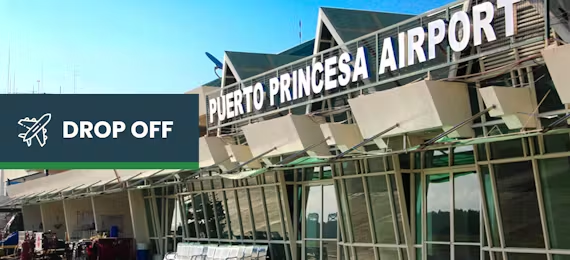
Enjoy a stress free ride from the accommodation back to Puerto Princesa International Airport arranged by our local team.
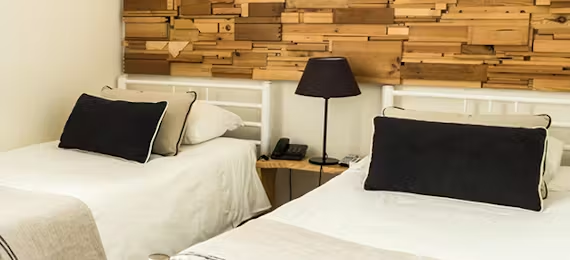
Discover the natural beauty and vibrant culture of El Nido, Palawan, one of the world’s top travel destinations.
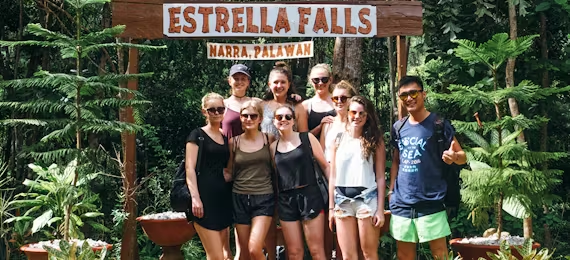
Introduction Week for the Philippines
Check what's required to visit the Philippines
Safety and support
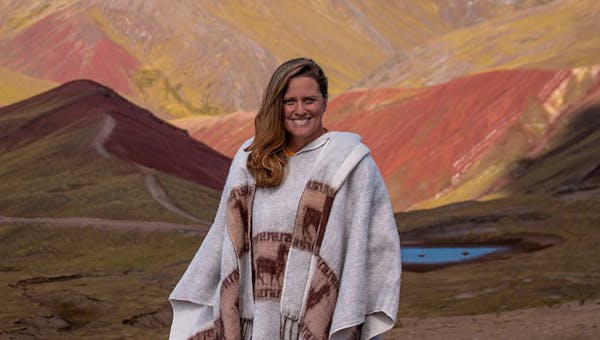
Safety and support
IVHQ follows best practice and industry-leading health and safety procedures, which are regularly reviewed and optimized as part of the B Corporation recertification.
- All volunteers encouraged to complete our interactive pre-departure training.
- All local teams trained on best practice volunteer management & First Aid.
- All IVHQ programs are required to adhere to IVHQ's Risk Management Policy.
- All volunteers have access to 24/7 in-country support from our local team.
Essential country information
Essential country information
| Capital | Manila |
| Population | 108 million |
| Languages | Filipino, English |
| Currency | Philippine Peso (PHP) |
| Time zone | UTC+08:00 |
Weather and climate: The Philippines has a hot and humid climate all year round, with average temperatures between 25°C and 28°C (77°F to 83°F). The hottest months are April through to May, where the average temperature sits above 30°C (86°F). The dry season runs from January through to June. The wet season runs from July through to December.
Latest blog posts
Other projects you may be interested in































